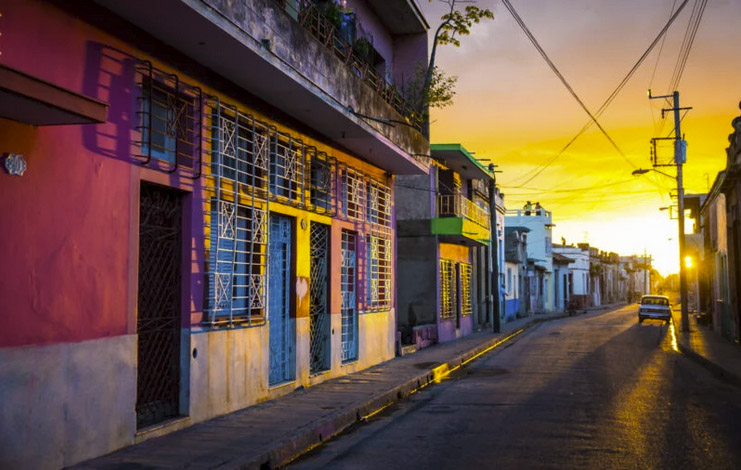
- Articles, Featured
A Book to Remind Us of the Evils of Socialism by George Leef
With so many Americans now saying that they prefer to live under socialism than capitalism, it’s good to get a strong reminder about the true nature of socialist regimes. I’ve just read a book that does so.
When I was much younger—in the 1960s and 70s—there was quite a lot of news about Cuba: Fidel Castro’s seizure of power, the Bay of Pigs debacle, the Cuban Missile Crisis, people escaping by sea (and many perishing in the attempt), suggestions that Castro was behind JFK’s assassination, and so on. Today, however, one hears rather little about Cuba, and what we do hear is largely leftist propaganda favorable to the country’s socialist regime, especially how it has supposedly achieved equality and high standards in medical care. Otherwise, few Americans give Cuba a thought.
Dr. Miguel A. Faria, Jr. seeks to enlighten us about the actual state of affairs in Cuba. His interest is deeply personal – as a teenager, he and his father escaped from Cuba in a small boat. After settling in the U.S., he went to medical school and became a neurosurgeon. Dr. Faria has written several books including America, Guns, and Freedom. His latest book is Cuba’s Eternal Revolution Through the Prism of Insurgency, Socialism, and Espionage in which he relates much about Cuba’s history that needs to be known, and disabuses readers of the carefully cultivated idea that his homeland has turned into a tropical paradise due to socialism.
Let’s begin with the history. After the end of Spanish rule in 1898, Cuba began modernizing rapidly and by 1950 was among the most prosperous countries in Latin America. The Cubans adopted a constitution in 1940 that gave them stability and freedom. But, in a tragic move in 1952, the military installed former president Fulgencio Batista in power to avert what they feared would be the victory of a candidate who favored socialism. Batista’s rule catalyzed opposition by left-wing idealists as well as middle-class Cubans who disliked the country’s retreat from democracy. Among the former was Fidel Castro, who began to foment rebellion in 1953.
Castro benefited from a favorable press, especially the New York Times, which ran a fawning article about him. But after ousting Batista in 1959, Castro showed his Marxist colors. Opponents were arrested, imprisoned, executed. Gun control was imposed in an effort at preventing any resistance. Private property was seized. Agriculture was collectivized. Those actions, so characteristic of leftists determined to stay in power no matter how much damage they do to liberty and prosperity, led to uprisings against Castro. The author tells the sad stories of the many Cubans who felt betrayed by Castro and fought to the bitter end against his regime, which was bolstered by heavy military support from the Soviet Union.
Faria has harsh words for President Kennedy’s handling of the Bay of Pigs invasion by a brigade of disaffected Cubans in April, 1961. The plan, approved during the last year of the Eisenhower administration, called for U.S. air strikes to eliminate Castro’s air force, but Kennedy cancelled them in a foolish effort at maintaining “plausible deniability.” He also changed the location of the invasion, much to its detriment. Furthermore, news of the invasion leaked and Kennedy was furious to read in newspapers that it was imminent—but he went ahead anyway. The result was a complete disaster. The freedom fighters battled until they ran out of ammunition and were then killed or captured. Faria argues that the Bay of Pigs fiasco emboldened Nikita Khruschev to put Soviet missiles in Cuba the following year.
What about living conditions in Cuba?
Americans who have read that they’re quite good (the Cuban regime still gets mostly favorable press) will be dismayed to read that living conditions are in fact bad and getting worse. Malnutrition is rampant, as evidenced by the presence of beriberi, a disease that leads to blindness. Another depressing indication of hunger is the sight of cattle without tails. Tourists thought that was some strange mutation when they saw the animals, but the truth was that peasants had cut off the tails of the poor animals to get a bit of meat. Food is scarce, unless you’re among the governing elite. That’s another typical feature of socialist countries.
Another revealing truth is the existence of what Faria terms “medical apartheid” in Cuba. What he means is that the few up-to-date hospitals and clinics are reserved for the elites and tourists. Ordinary Cubans must deal with doctors who are overworked, poorly paid, and required to use outmoded equipment in unsanitary conditions. To maintain the inflow of needed money, the government dishes out propaganda for tourists, such as that Cuba is “free of contagious diseases.” That’s simply untrue, but the illusion must be maintained. Some years back, there was an outbreak of dengue fever and one doctor tried to inform people about it. For doing so, he was arrested and imprisoned for speaking the truth. After all, the presence of a deadly disease could scare away tourists, costing the government cash.
The story of environmental degradation in Cuba is equally alarming. As is typical of socialist regimes, the government has undertaken many projects that consume valuable resources but generate little or no value in return. Cuba has built many roads that few vehicles ever travel and dams that hold little water. The widespread destruction of forests has left species without habitats. Environmentalists who believe that socialism ensures a clean, pure, sustainable environment need to understand how badly socialism has despoiled the once-beautiful island of Cuba.
Fidel Castro and his brother Raul are gone, but their totalitarian regime lives on under Miguel Diaz-Canel. He has no more regard for the liberty and prosperity of ordinary Cubans than did the Castros. When, in July of 2021, protests erupted in Cuba over the terrible living conditions, the government blamed the protests on COVID and then ruthlessly suppressed them with arrests and charges of sedition leading to long jail terms. This underscores Hayek’s point that in governments with unrestrained power, the worst come out on top.
If Dr. Faria entertains any optimism for his native land, he keeps it well hidden. The government is in complete control and is not about to relinquish any of its power. “Progressives” who clamor for a strong government dedicated to socialism ought to read this book and then think again.
Written by George Leef

George Leef is director of editorial content for the James G. Martin Center for Academic Renewal. He holds a bachelor of arts degree from Carroll College (Waukesha, WI) and a juris doctor from Duke University School of Law. He was a vice president of the John Locke Foundation until 2003. A regular columnist for Forbes.com, Leef was book review editor of The Freeman, published by the Foundation for Economic Education, from 1996 to 2012. He has published numerous articles in The Freeman, Reason, The Free Market, Cato Journal, The Detroit News, Independent Review, and Regulation. He writes regularly for the National Review’s The Corner blog and for EdWatchDaily. He recently authored the novel, The Awakening of Jennifer Van Arsdale (Bombardier Books, 2022).
This book review was originally published on The American Institute for Economic Research website on September 3, 2023. It is posted here for the enjoyment of our readers at HaciendaPublishing.com.
Cuba’s Eternal Revolution through the Prism of Insurgency, Socialism, and Espionage (July 2023) by Dr. Miguel A. Faria, was published by Cambridge Scholars Publishing in Newcastle upon Tyne, United Kingdom. You can order the book directly from the Cambridge Scholars Publishing website. It is a beautiful hardback and fully illustrated book. In addition, PAPERBACK copies are now available at the reduced price of £36.99. The author discount of 40% means one can buy copies of the book at £22.99. The author discount code is AUTHOR40 and this discount can now be used by friends, family and colleagues for both editions. This code is to be used by buying directly from the publisher’s website.
Copyright ©2023 George Leef
3 thoughts on “A Book to Remind Us of the Evils of Socialism by George Leef”
Excellent review. I have read and reviewed this wonderful book as well. It is a magnificent book to read. Miguel wrote a previous book on his first hand and historical knowledge of Cuba under the communists. It also is well worth reading. The present book goes even further. As he concludes, nefarious people in our government and media handed Cuba over to the communist, who, as usual, destroyed it.
Thank you so much, my dear friend!
Cuba before and after the imposition of communism! Watch
https://www.facebook.com/patriaorgullosa/videos/2650564258379409